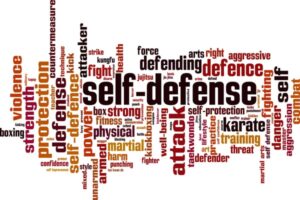
Under New Mexico’s General Jury Instructions, UJI 14-5190, a person does not have to retreat in an attack. Instead, that person has the right to defend themselves and stand their ground, which is why it is referred to as the “Stand Your Ground” rule. Under UJI 14-5190, you may defend your property with a reasonable amount of force as well.
The biggest issue to note here is that these are jury instructions; therefore, your attorney must convince a jury that you were justified in standing your ground.
The Basics of Stand Your Ground Rules
A stand your ground rule means that you reasonably believed you were threatened with serious injury or death, which prompted your use of excessive force – even if you could have retreated. Therefore, unlike some states, you do not have to prove that you could not retreat. A state without this law would require a person to prove that there was no option for retreat and that their only option was to use self-defense or peril.
A large majority of states have to stand your ground laws, and New Mexico is one of them.
The Type of Weapon Does Not Matter
You can defend yourself with any type of weapon, as the jury instructions do not require that you only stand your ground using a firearm.
Uniform Jury Rules Will Not Stop You from Being Charged Initially
While New Mexico has to stand your ground laws, that does not mean you will not find yourself arrested and charged with homicide or intentional manslaughter for your actions. In some cases, the death was an act of self-defense, but these are rare instances.
Law enforcement may take you in for questioning and possibly arrest you if they feel there is probable cause. A prosecutor may continue with the case if they feel you did not have a basis for self-defense.
Some state prosecutors feel they would send a message if every person who stood their ground was not charged with a crime, and others believe that these laws promote violence. Therefore, to prove their point that no one can justify taking another person’s life, the state may try to prosecute you.
Proving That Stand Your Ground Laws Apply in Your Case
A person cannot commit homicide and then just claim “self-defense” and be free of all criminal charges. Instead, there are factors your attorney must prove to the jury to ensure that you were justified.
- The reasonable threat of serious injury or death. First, and most importantly, you must prove that there was a reasonable threat against your safety or life. If a person came at you with no weapon, and they were not physically attacking you, you may not be justified. Likewise, if the person that was once threatening you is leaving, shooting them in the back would not be considered a reasonable threat. When the person disengaged, you no longer had a reasonable fear.
- Reasonable use of force was used to avoid the threat. Likewise, the threat must match the force used to thwart the threat. If you bring a weapon and the person “threatening” you have none, using that weapon may be considered unreasonable because the chances of your life being in danger or serious injury do not justify the use of a firearm against an unarmed person.
- You did not instigate the encounter. Another important factor is whether you were the instigator of the encounter. If you started the fight, and then try to justify harming another person with self-defense claims, you will not succeed. The stand your ground laws require that you be the victim.
Self-Defense Laws Are Not a Blanket Defense Strategy
You may have the right to protect yourself, but claiming self-defense is not always wise. These are not meant to be a catch-all defense strategy for any violent crime against another person. Likewise, you may succeed with a self-defense case, but that claim will then be used against you by surviving loved ones of the deceased in civil court. Therefore, it is something to consider when you choose this route as a defense. The burden of proof is much lower in a civil case than criminal, which means the courts may award wrongful death damages to the surviving family members, even if you were not convicted of a crime.
Speak with a Defense Attorney about Your Stand Your Ground Defense
If you are being accused of a crime, but you were standing your ground for the safety of yourself or your property, you may have a self-defense claim. Do not assume that this is a viable strategy, however. As is shown above, using a self-defense strategy requires calculation, a keen understanding of the law, and the right evidence. You cannot simply claim self-defense. Instead, you must show the jury that you had the right to stand your ground and that you can prove all elements.
Most importantly, you must build enough reasonable doubt so that the prosecution cannot succeed in their case. To do so, you need the help of a seasoned criminal defense team. To get started, schedule a free, no-obligation case evaluation with the criminal attorneys at New Mexico Criminal Law Offices.
We want to help you get the best defense possible. Meet with us to discuss your case, and we will analyze the evidence to help outline the right strategy for you. Call our office to schedule your consultation, or contact us online with your questions.

